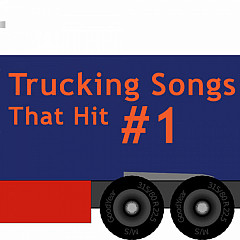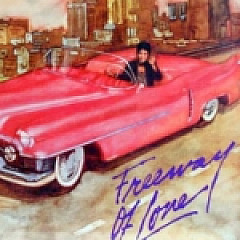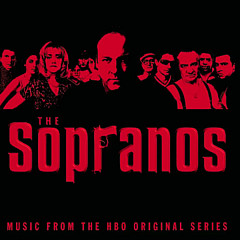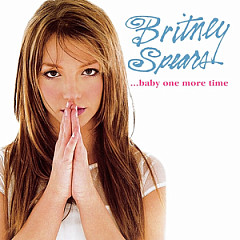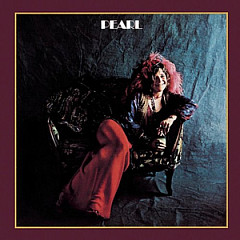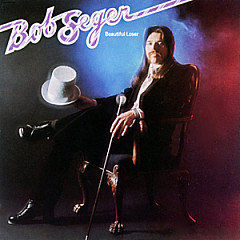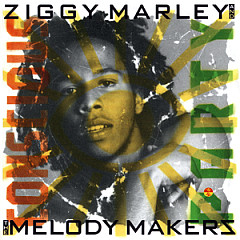Those who dug a little deeper into the band's music know that they were responsible for several albums that impressively combined pop, prog, and rock (namely 1980's Silent Night, 1981's Worlds Apart, and 1983's Heads or Tales). And although the band scored a Top 30 album Stateside with Worlds Apart, they never truly capitalized on the album's success, instead focusing their attentions more to Europe, where their fan base has continued to flourish over the years.
Upon the release of Saga's 21st studio effort overall, Sagacity, Sadler chatted with Songfacts about a variety of topics, including songwriting, the stories behind several Saga songs, MTV's early years, and the reason why he exited the band in 2007, before returning in 2011.
 Greg Prato (Songfacts): Let's talk about the new album Saga City.
Greg Prato (Songfacts): Let's talk about the new album Saga City. Michael Sadler: Well, the last few recordings have been pretty much the same procedure, where we'll all write individually, write on our own, get a stockpile of the material, whether they be complete songs or just some good bits and pieces, a good verse, good chorus here and there. And then just kind of throw it all in a big pot and get together and take out the best bits and decide which songs we're going to work on. And at that point we turn into a sort democratic writing machine, as it were, and then say, "Okay, well, this is worth working on, that's worth working on." And sort out the 10 or 12 songs that are going to go on the record.
I think the only difference songwriting-wise this time around was I tried to instill in all of us a kind of feeling of... let's put it this way, I like to keep my ear to the ground in terms of the fans and what they like about what we're doing and what they're not particularly fond of and that kind of thing. And I've found recently a lot of fans, especially the European fans, have been mentioning the earlier albums like, in particular, Silent Night. And I thought to myself, "What is it about that album that touched so many people at the time?"
And not really wanting to replicate that - in other words, I didn't want to make a new Silent Night and say, "Well, we need a song like that, and a song like that, and a song like that." More trying to sort out what the mindset was at that time and try to slip back in time and just try to remember what were we feeling then. What were the rules? What were the influences? What kind of mood were we in when we wrote that record? But just very subconsciously.
I came to the conclusion that at that time we really didn't have any rules. We weren't really listening to anybody. We never really have. [Laughs] It really was a matter of just being completely open-minded and just saying whatever felt good, if we liked what we were working on, made it onto the record. In other words, we didn't say to ourselves, "We can't use a song like that because it's not going to be that kind of record." It wasn't a matter of it's going to be this kind of record or that kind of record. It was going to be the kind of album that whatever it was, it was going to make itself known that this is how this album should sound. So it was more about just getting strong songs and if everybody liked it, it didn't matter if it was this way or that way, it's going on the album.
Songfacts: Something I was very impressed with the album when I heard it was how strong your singing is. It seems like your singing is as strong now as it was back on the classic Saga albums. Is there anything you do to keep your voice up?
Sadler: No. I mean, I don't do any warm-ups or things like that, especially live. I'm just really lucky. I think maybe the only thing I can attribute it to is learning how to sing properly at an early age. Growing up in a church choir and learning the actual techniques.
But yeah, there's no particular training. Some people say that I actually am singing as good or better from the '80s. And I think maybe if anything it might have something to do with my stopping alcohol. I've been clean and sober for 12 years now, and when I stopped, there was a marked difference in my voice. It actually seemed to get stronger. Whether that is directly related to the alcohol or not, I'm not sure.
Physiologically speaking, alcohol can close up your throat a little bit, so maybe that's why. But I don't know.
Apart from that, I guess I'm really, really lucky. I sometimes do all the wrong things for my voice.
Sadler: I think it's probably the British influence. Just as a country, especially in the Ontario area, we're very influenced historically by the British, and maybe that carried over into the music. I know that the Province of Quebec and Quebec City itself was very instrumental in breaking the British prog invasion in the '70s, where bands like Genesis and Supertramp made their start in North America out of Quebec, or the northeast and North America.
So I don't know why, but it always was a hotbed for progressive rock. We grew up with Gentle Giant and King Crimson and the earliest Genesis. So maybe it's the British influence, just thinking outside the box a little bit more than others. I'm not sure. But I know that Quebec was always a center for prog rock.
Songfacts: I first interviewed you a few years ago for one of my earlier books, MTV Ruled the World: The Early Years of Music Video. How much of a role do you think that MTV played in the success of Saga in the early '80s?
Sadler: Oh, very much so. A lot. I mean, at the time when MTV was starting out, we were right there with Worlds Apart and we had "Wind Him Up" and "On the Loose" hitting there. I remember at the time the management, the powers that be as it were, suggested doing a video. And we thought, "What do you mean, a video?" "A rock video." And this was all brand new. It was like, "Why would we do that?" "Well, it's going to be a good marketing tool, because there's a thing called MTV and they're going to play rock videos, little movies to go along with the songs." And I thought, "Okay. Well, if you think it's a good idea."
So we went ahead and did one, the initial one for "On the Loose," knowing that it was going to be the single. MTV was just starting out and they had very little content. We just happened to have a rock video ready to go.
Suddenly we found ourselves in high rotation on MTV, so you were seeing the video up to 10 times in a 24-hour period. It was tremendous exposure from MTV, which really, really helped launch the band stateside, for sure.
Songfacts: Now that I think back to it, to the best of my knowledge that may have been one of the first rock videos that wasn't just a straight video of a band performing on a soundstage. There was also a storyline to it.
Sadler: Right. They were sort of conceptual videos that rock videos turned into. An actual storyline. Fictitious as the storyline was, it didn't matter. It had some kind of movie quality to it.
Songfacts: What was the inspiration behind the song "On the Loose"?
Sadler: "On the Loose" is blowing off steam. Everybody's got to just let it out every once in a while, you can't keep things inside. You know: tonight I'm on the loose, we're on the loose, you're on the loose. It's as simple as that.
At the time, and it's just gotten more so, stress, stress, stress for everybody, every single human on this planet. Every once in a while we've got to let go and just blow it out and deal with the consequences later. You've got to open that valve every once in a while.
Songfacts: How about the song "Wind Him Up"?
Sadler: There's a collection of songs throughout our career where you latch onto the idea for a story, an actual story which actually translates into a video, which is very handy for the people making the video. But it basically deals with gambling. A fictitious gentleman by the name of Aldo, he's got his gambling problem. Again, excess.
I don't know if there's a lesson to be learned or a moral to that, but it's about gambling and the addiction factor.
Songfacts: And then probably my favorite song on the album Worlds Apart is "Time's Up." So what sticks out about "Time's Up"?
Sadler: That's kind of the reverse of "On the Loose." It's about being a daydreamer and a man of inaction sitting there going, "Well, if I could do this and I could do that." And before you know it, time has passed by and you didn't do any of those things you were thinking. You didn't act on any one of them.
You may have some passion about a few different things, but if you just sit there going, "Boy, wouldn't it be great if I did this?" And "Wouldn't it be great if I did that?" Well, you'd better get off your tush and start doing something, brother, because it's going to be too late to do something about it before you know it.
Songfacts: I'm surprised that that song wasn't a bigger hit. Was that song ever released as a video or single?
Sadler: No. And I'm surprised, too. It's a very, very big song live, especially on the other side of the pond. I was actually surprised by that, too.
I liked the tune. When we put on the record, I was really happy with the song. Then it was proposed to possibly play the song live, and it was one of those where I thought, "This is not going to translate into a live song." I mean, some songs do, some songs don't. Sometimes they're a surprise. This was a surprise. Because I can't remember who suggested doing that song live and putting it in the set, but at the time I thought, "Well, we can try it. We'll do it at rehearsal and maybe try it for the first few gigs of whatever tour we tried it on." I'm thinking to myself, "We'll check, but I think you'll find after a few nights the reaction's not going to be one that we really want in the set."
And from the get-go it was one of the most popular songs of the show. I thought, "I don't get it." But I guess it's the strength of the song itself. You can never predict it.
In reverse, there were songs that I thought would be just killer live, because they're more uptempo and more exciting. We do it, and the song gets a really lukewarm reaction. So it's really hard to tell until you present it in a live situation. But I think that song could have been pushed a lot more than it was at the time.
 Songfacts: Can you think of any examples of songs that were a surprise that they worked so well in concert and also other songs that you thought would have worked well and then didn't?
Songfacts: Can you think of any examples of songs that were a surprise that they worked so well in concert and also other songs that you thought would have worked well and then didn't?Sadler: Well, any of the lower key material, generally you don't want to go too low during a set - you don't want to have too many ballads. A song called "No Regrets," for example, was a massive song live. It's a nice song, it's a ballad, it's nothing really particularly exciting, but perhaps it's that side of the band. It's the soundscapes and it's more about the atmosphere and the feeling that the song puts across. But that one translated wonderfully live. As well as the fact that Jim Gilmour would play clarinet and do the clarinet solo live for that song. So that was a nice thing in terms of presentation.
Songs that I've thought would work but didn't... it hasn't happened too much. Most of the time the uptempo ones you can tell that it's probably going to translate live. I think the only time that it wouldn't, and I can't think of any specifics, would have been times when a song would get a lukewarm reaction, like, "Oh, that's pretty good." But the excitement factor that I thought was built into the song just didn't translate. There's not one that comes into my head immediately.
The most obvious thing is the other way around, when you think a song that won't make it live and it does. That's when it's very shocking.
When you think there's a song that's going to happen live and it doesn't, it's not that it so shockingly doesn't go over as much as it didn't go over as well as I thought it would. In other words, we would keep it in the set, but I had hopes for it being a barn-buster in a live setting.
Songfacts: What about the song "The Flyer"?
Sadler: That's a perennial favorite, and we actually started playing that one so much we got sick of playing it live. It was like every time we put a set together, someone would say, "Let's do 'Flyer.'" "No, we did that the last six tours. Let's stop playing that song."
It's a fun song to play live. Nothing much to it. It's just a nice uptempo, good-feeling track. It's a great sing-along song. No deep message. Just again dealing with real life stress: I'm the flyer, I've got get out of here, I've got things to do. I'm on the move, things are happening.
It's a perennial favorite that we stopped playing, actually, live. It's kind of a go-to second encore if we get one. "What can we play? They won't let us leave the building." We can always throw in "Flyer" and call it a night. It has served us well, let's put it that way.
Songfacts: And from the latest album, what about "Let It Slide"?
But it's those little white lies that aren't going to hurt anybody: Do you think this one's big enough to reveal the truth about what you just did, or is it one of those where you can just let it slide for now? But knowing in the back of your mind that all these times when you let things slide, they're going to catch up with you eventually.
It's dealing with sweeping things under the carpet for now. But every problem has a solution or a consequence that's going to come back to you eventually. Are you going to let this one go for now and deal with it later? It will come back and get you. But we all do it. It's a matter of prioritizing and there's certain things where you just kind of go, "Well, I'll let that one slide for now and perhaps deal with it later if it's still an issue later."
Songfacts: Why did you leave Saga in 2007?
Sadler: 100% personal reasons. The obvious first reaction is going to be musical differences or personality clashes, and it was none of those things. It had been exactly 30 years, and I had really always wanted to have a child of my own. I thought, "Well, this is the perfect time to do it. I'd like to start working on that."
I just said to the guys, "It's 30 years, I want to do this now. Whether it's permanent or not, we'll call it a permanent departure." Leaving, perhaps a slight window open in the back of my mind thinking perhaps there's a chance one day of discussing the idea of coming back. But it certainly was not the intention straight out.
I didn't close the door on it. I just thought, "Well, this is what I'm going to do now." And I gave them a year's notice so they could find a replacement if they decided to keep going.
Michael Sadler is not the only rocker to take an extended period off from his musical career in order to focus on raising a family. Perhaps the most famous of all was John Lennon, who all but retired from music after the birth of his second son, Sean, on October 9, 1975, and became a stay-at-home-dad until 1979 (which eventually led to the release of the last Lennon album issued during his lifetime, 1980's collaboration with Yoko Ono, Double Fantasy).
So I decided rather than take that chance, I would just be there, and surprisingly it happened within six months. My wife got pregnant halfway through the year that I left. It was kind of funny, because people looked at it and said, "Let's see, he left the band at the end of December and his son was born at the end of January. That was pretty fast. [Laughing] So he accomplished exactly what he said he wanted to do."
But yeah, it was not personalities, it wasn't musical differences. But totally personal reasons.
Songfacts: And during that time when you weren't in the band, did you have to get a job outside of music or were you pretty well off at that point?
Sadler: I was secure enough that I didn't have to do any outside things. I did some outside projects, but all musical. I sang with a rock orchestra in Germany a few times, but they were doing Saga material, which was kind of cool. I did some pop stuff with a band - the guitar player from a band called PUR in Germany. Did some live performances with him. I sang with a big band, believe it or not, again, Saga material.
There was a period, I believe it was in 2009, when I went over to Europe for a stretch of about two or three weeks, and in that time I sang three different genres and all of them Saga material. One was with the orchestra and one was with this pop band and one was with a full-on jazz band. So I came back a little bit confused. [Laughs] I came home, I said, "What just happened?" Because I sang with the orchestra, then the next night I was singing with the big band. The next night I was singing with the pop band. So I had these three different versions of pretty much the same songs in my head. I came back and I was like, "Wow."
It was great for a singer to be able to do that, especially of your own material. Singing songs like "Wind Him Up" in the jazz format, big band horns and that kind of thing, it was a real eye-opener for me. It was great. It was really enjoyable.
But I kept myself busy. Kept myself busy enough that I will always play music or create music. And always perform it live to the point just short of going onstage in a wheelchair. [Laughing] Music will always be the passion and the go-to, but fortunately I've had enough of a career that it's nonessential that I go out and do a 9 to 5 job to makes ends meet. I'm secure enough financially to be able to afford myself the time off to be there with my son, which I really wanted to do for at least the first year or so - to really embed daddy's presence in his mind and his heart.
Eventually if I did either go back to Saga or start touring again with someone else or by myself, I hope that he would understand that that's what I do for a living, and that we've already had this bond happening. So that's indeed what did end up happening.
Songfacts: It seems like Saga, after the Worlds Apart album, as far as Stateside, the success didn't really continue. I always assumed that it would, because for instance, the next album's single, "The Flyer," was a hit elsewhere. Why do you think Saga's commercial success didn't continue in the US but continued in Europe after that album?
I think there was someone there, I don't know who, but whoever at the time wasn't particularly fond of the record. When that happens, you've got someone calling the shots in a position where they can sort of make or break. The nature of the business was still such that someone, or two or three people at a company, could make or break a band simply because they didn't like it, not looking at the big picture. Just looking at it realistically, I think that's pretty much what happened.
And it's pretty hard to make it in the States. It's a massive place. It's a huge territory, and if you lose momentum that quickly, people assume certain things, and it's very difficult to bounce back from that. The only way to do that is either come back with a #1 record, or massive touring and just pounding the country, which we didn't do, to be fair. We'll shoulder some of the blame by not touring enough at the time.
But when you see lack of interest and nothing really happening on a record, you're faced with, Shall we tour more in Europe and really solidify that side of the ocean, or should we take six months, eight months, maybe a year and pound away at the States and try and get that back? Because we didn't have the strength or the momentum of an album in Heads or Tails and we chose to, I think wisely at the time, just try to bolster it and secure the market on the other side of the ocean.
But in retrospect, we probably could have done a lot more touring the States than we had at the time, or have up till now. But having said that, there is a concerted effort to try and get back into the States this year. If not this year, early 2015 with this new album.
And the way to do it these days, with the nature of the business and the nature of the touring business, is go out with a package. Like, a Styx or Kansas or Foreigner, someone like that. Like a two or three band package. I know that Styx, for example, just goes out and pounds the United States. Every year they'll do over 100 shows, maybe 200 shows. In fact, the last time I talked to Tommy Shaw - and we did a gig with him up in Canada - he said they're not interested in doing any new records. It's almost like, "Why bother?"
And it's fine, because everything has turned around in the meantime. You used to do a tour to support your record. Now you put out a record so you have a reason to tour, because that's the mainstream of revenue for a rock band such as ourselves and AOR bands of that era. That really is the biggest viable source of income, the money trail as it were. The money to be made now is in touring. As you know, everything is downloads now, and it's not the main revenue.
So everyone's now making records so they can go out and tour. With fingers crossed, you'll see Saga in the States by the end of this year or 2015.
August 8, 2014.
See what Michael is up to on Twitter.
Photos courtesy earMusic.
More Songwriter Interviews


